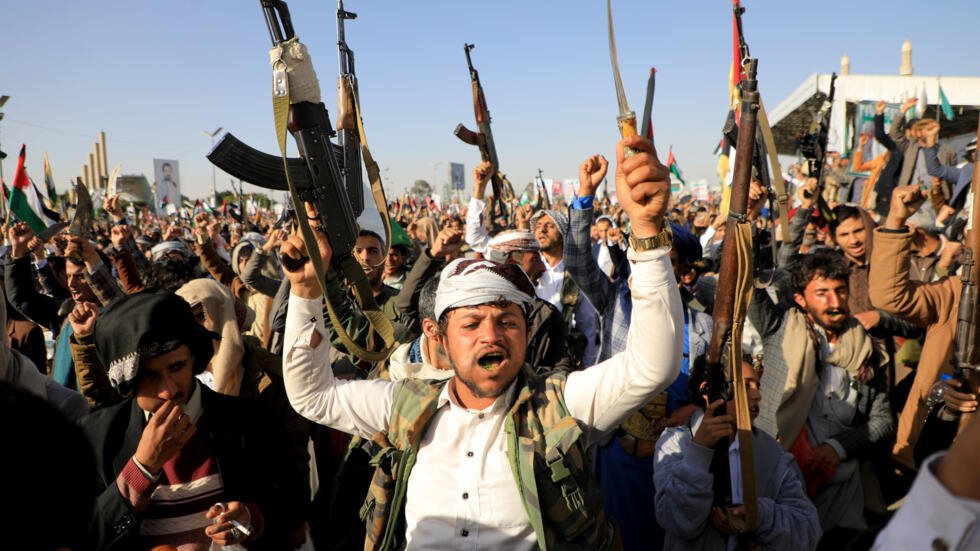In a joint military operation on Monday, the United States and Great Britain launched targeted attacks on Iranian-backed Houthi militants in Yemen. This latest offensive aims to curb the rebels’ ability to disrupt international shipping lanes in the Red Sea. The strikes, which occurred at approximately 4 p.m. Eastern Time, focused on eight sites in Yemen, marking the most substantial military action since the initial attacks carried out on January 11.
According to a joint statement from the U.S. and its allies, as well as information from U.S. military officials, the strikes involved U.S. Navy warplanes from the USS Eisenhower and Royal Air Force fighters. Additionally, ships and submarines deployed Tomahawk land-attack missiles. The targets included an underground storage site housing more advanced missiles than those destroyed in the earlier strikes. The ongoing series of attacks seeks to degrade the Houthi capabilities to assault vessels in critical shipping lanes.
The Houthi rebels have persisted in launching over 30 attacks since November, even after warnings and previous military interventions by the U.S. The rebel group justifies its actions by citing Israel’s invasion of Gaza.
The Biden administration’s efforts to confine the conflict to Gaza face challenges as it becomes increasingly entangled in conflicts with Iranian-backed militants like the Houthis in Yemen and militias targeting U.S. and allied bases in Iraq and Syria. Over the weekend, Iranian-backed militias attacked al-Asad Air Base in western Iraq, where U.S. troops were assisting Iraqi forces fighting against ISIS. The attack included ballistic missiles, raising concerns about potential traumatic brain injuries among both U.S. and Iraqi troops.
In another development, Israeli Prime Minister Benjamin Netanyahu, while reiterating his rejection of a Palestinian state and commitment to retaining security control over Gaza and the West Bank, faces internal challenges. A no-confidence vote submitted by the Knesset’s Labor faction failed to gain sufficient support, with many lawmakers dismissing it as politically motivated.
The Israeli military reported the deaths of three more soldiers, bringing the total casualties to 198 since the invasion began. Meanwhile, protesters, including family members of Israeli hostages, stormed the Israeli parliament and gathered outside Netanyahu’s residence, demanding more decisive actions to secure the release of their loved ones.
Despite the challenges, a majority of Israelis reportedly support the U.S.-proposed peace plan, according to a poll conducted by the Geneva Initiative. The plan calls for the release of all hostages and the eventual establishment of a demilitarized Palestinian state. Over 51% of respondents expressed support for the deal, while 29% opposed it. The plan also envisions normalized relations between Israel and Saudi Arabia, with Arab nations aiding in the reconstruction of postwar Gaza.
The survey results indicate a willingness among the Israeli public to accept a demilitarized Palestinian state in exchange for regional security and the return of abductees. However, Prime Minister Netanyahu remains steadfast in his commitment to Israeli security control over Gaza and the West Bank.
As tensions persist, Israeli opposition leader Yair Lapid has called for new elections, urging Netanyahu to negotiate a date for this change. Lapid argues that Israel needs a shift in leadership and emphasizes the importance of setting an example that politics can be conducted differently without compromising the ongoing war effort.
